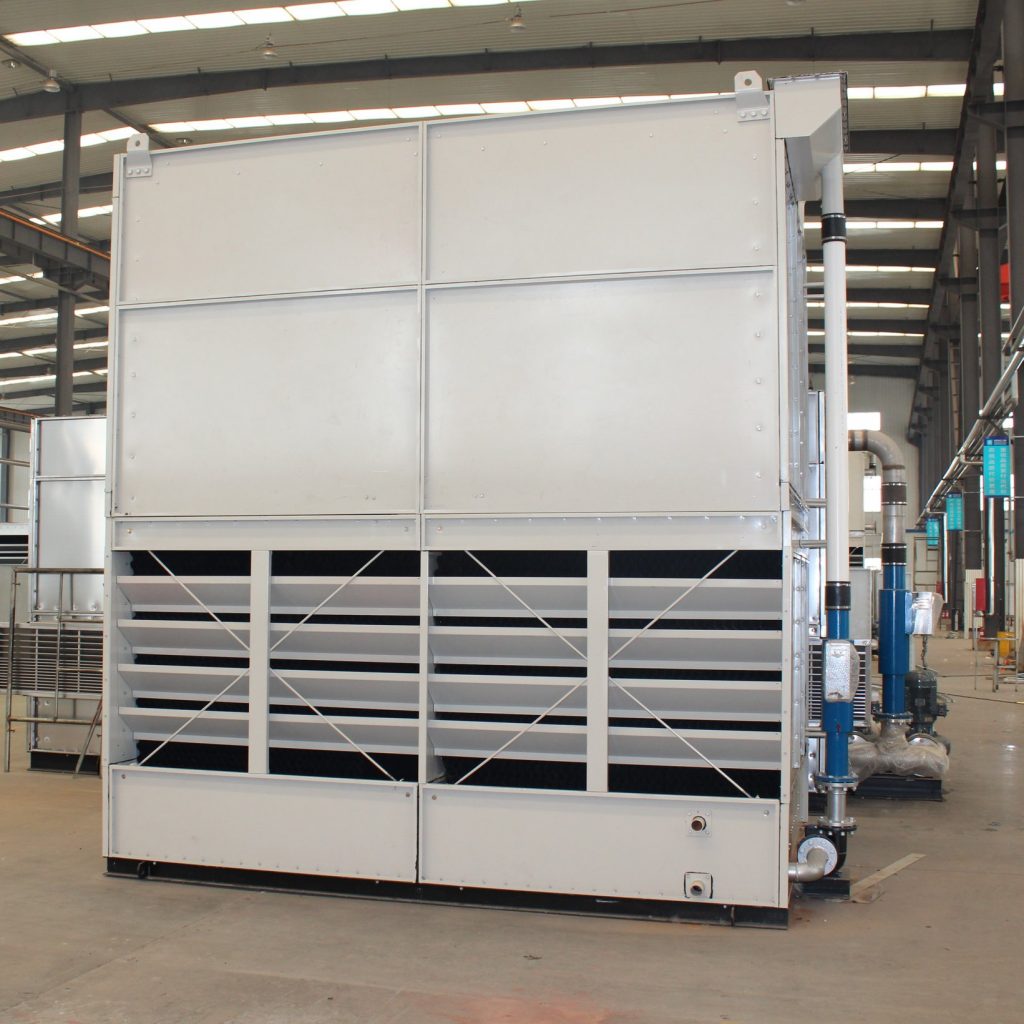Closed Circuit Cooling Towers (CCCTs) are increasingly being used in data centres for efficient and reliable cooling. Here’s how they are applied and their key benefits:
1. How CCCTs Work in Data Centres
Closed-Loop Design: CCCTs keep the cooling water isolated from the external environment, circulating it through a heat exchanger
- Heat Rejection: Hot water from the data centre’s cooling system passes through a coil in the tower, where heat is transferred to an external water/air stream via evaporation.
- Dry/Wet Operation: Many CCCTs can switch between dry (air-cooled) and wet (evaporative) modes, improving efficiency in varying climates.
2. Key Benefits for Data Centres
- Water Conservation – Since the primary cooling loop is closed, water loss is minimized compared to open cooling towers.
Reduced Contamination Risk – Protects IT equipment from airborne contaminants (dust, microbes) that can clog systems.
Energy Efficiency – Hybrid models leverage evaporative cooling only when needed, reducing energy consumption.
Reliability & Uptime – Less scaling and fouling compared to open towers, ensuring stable cooling performance.
Modular Scalability – Can be easily expanded as data centre cooling demands grow.
3. Common Configurations
- Indirect Evaporative Cooling (IEC): CCCTs work with chilled water systems, rejecting heat without direct contact with outside air.
- Hybrid Systems: Combine air-cooled chillers with CCCTs for optimal efficiency in different weather conditions.
- Free Cooling Integration: In colder climates, CCCTs can enable free cooling by bypassing mechanical chillers.
4. Challenges & Considerations
- Higher Initial Cost – More expensive than open cooling towers due to heat exchangers.
- Maintenance – Coils must be kept clean to maintain efficiency.
- Climate Dependency – Efficiency drops in high-humidity environments.
5. Industry Trends
- Liquid Cooling Integration: Some modern data centres pair CCCTs with direct liquid cooling (DLC) for ultra-high-efficiency cooling.
- Sustainability Compliance: Helps meet green data centre standards (e.g., LEED, ASHRAE 90.4).
